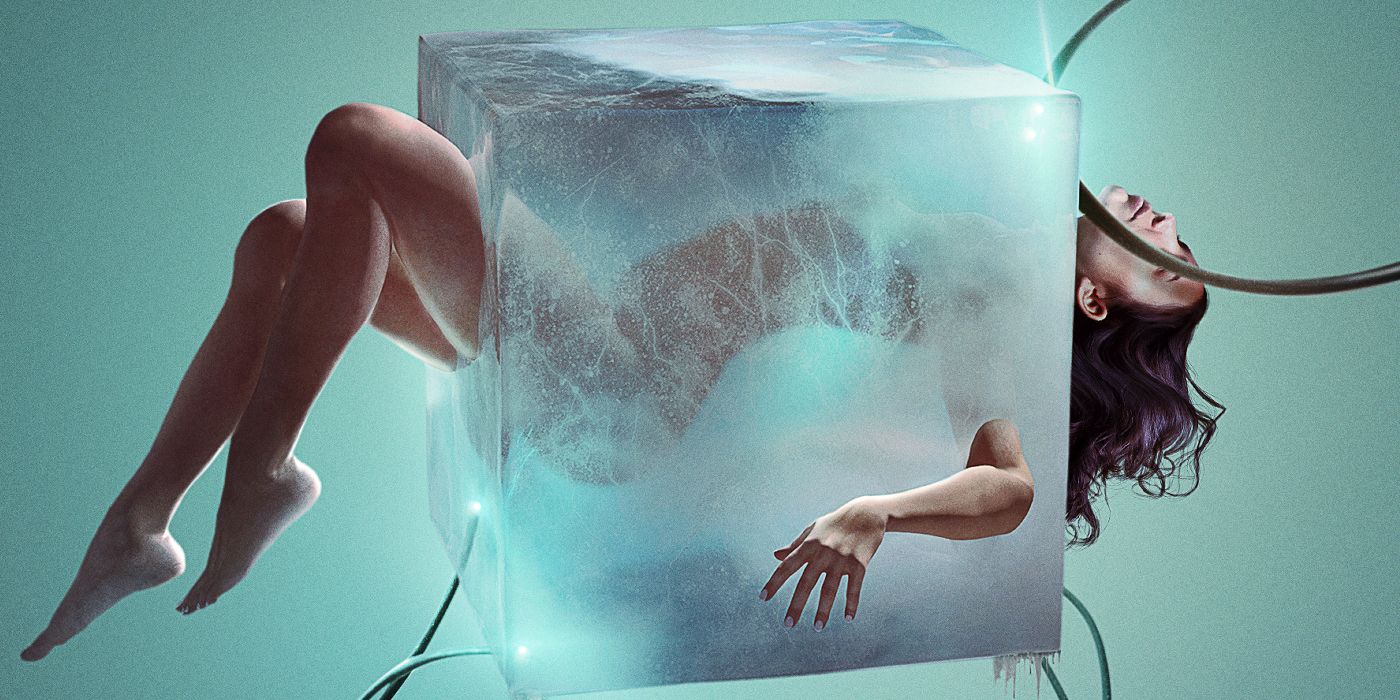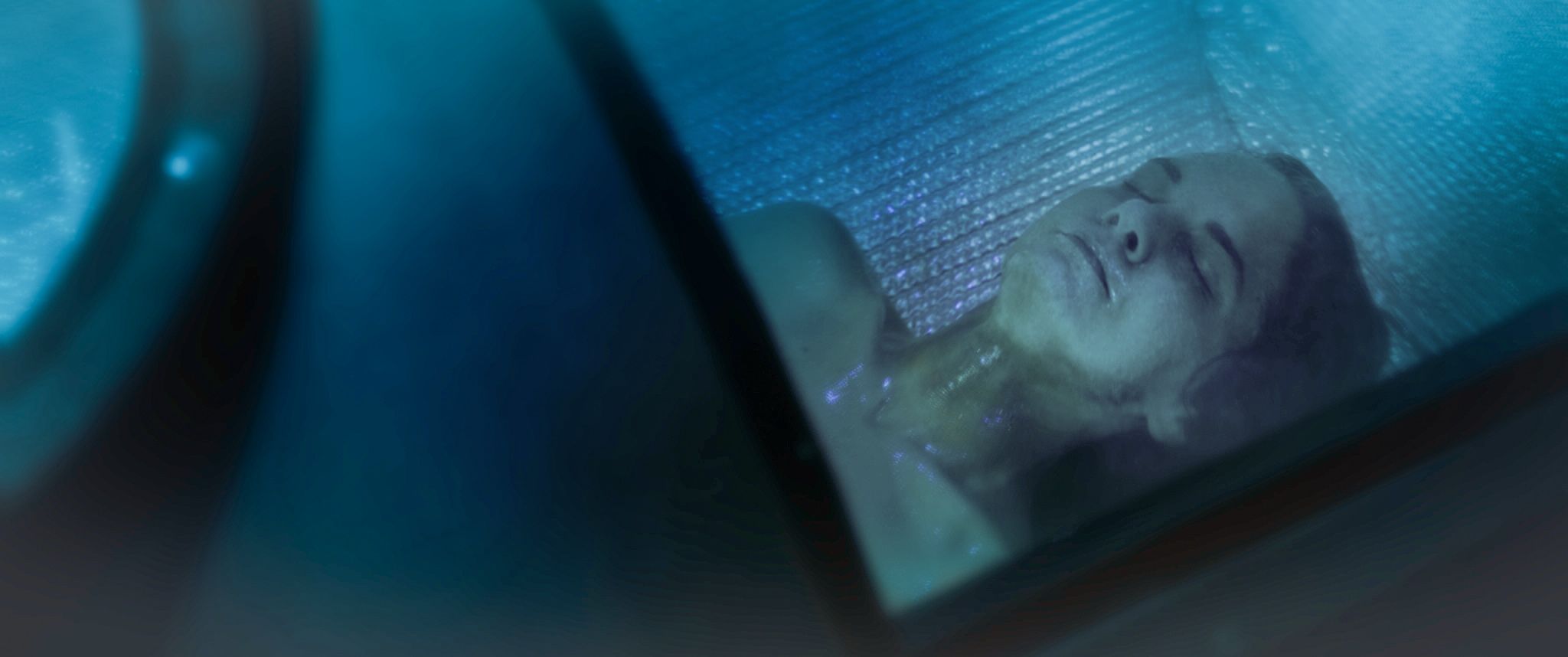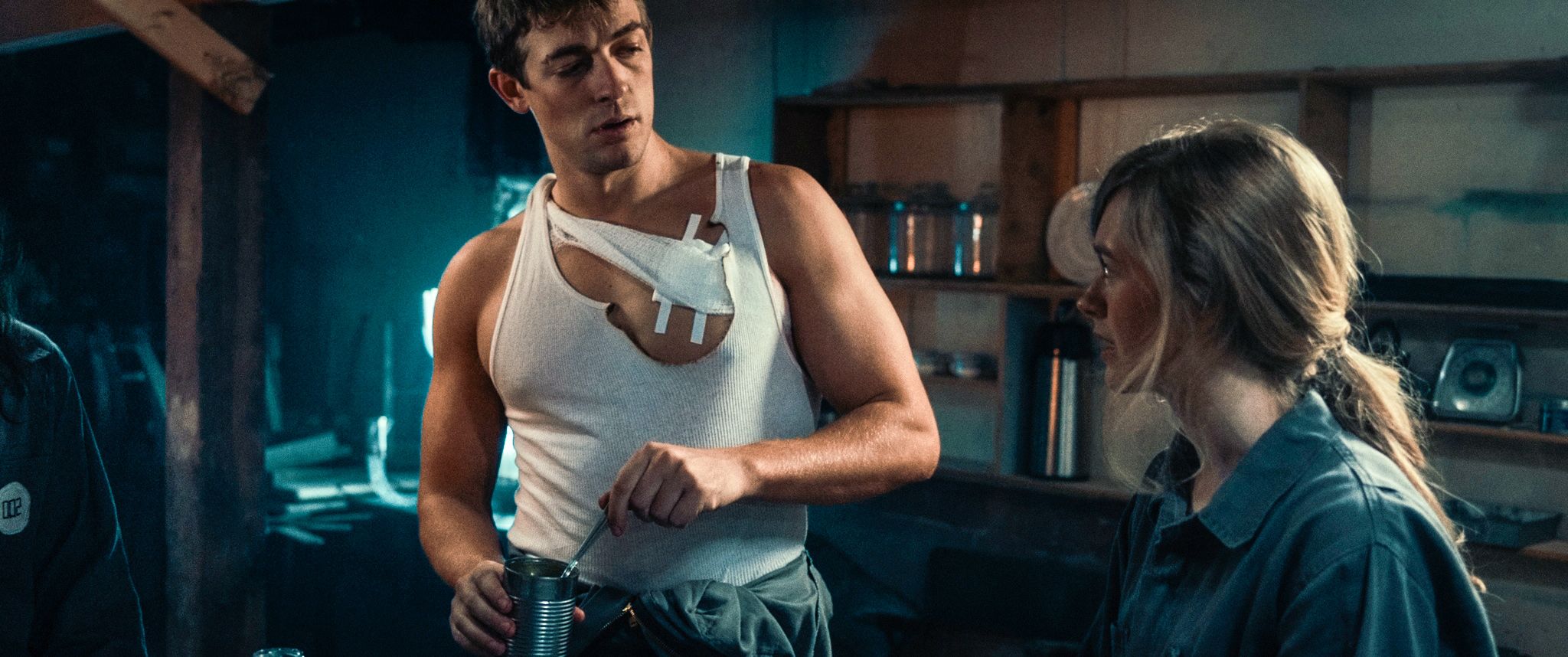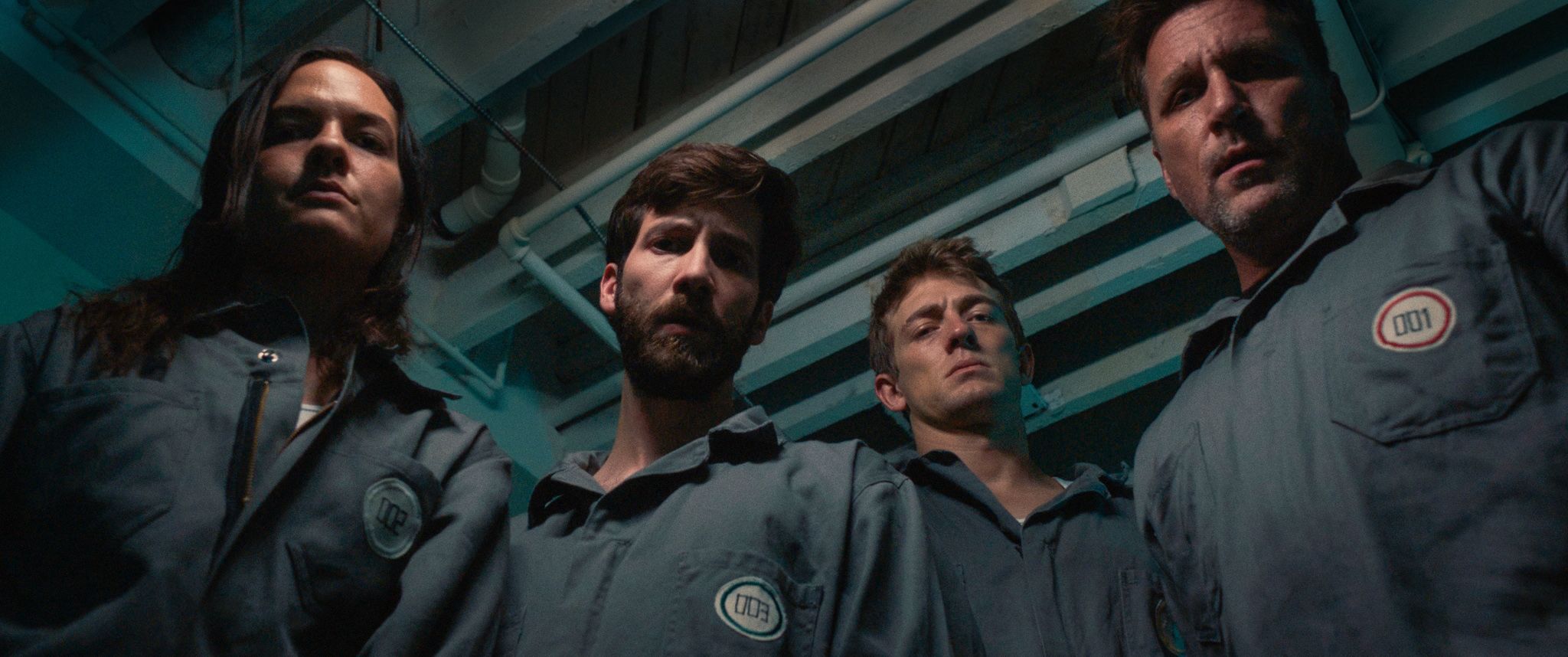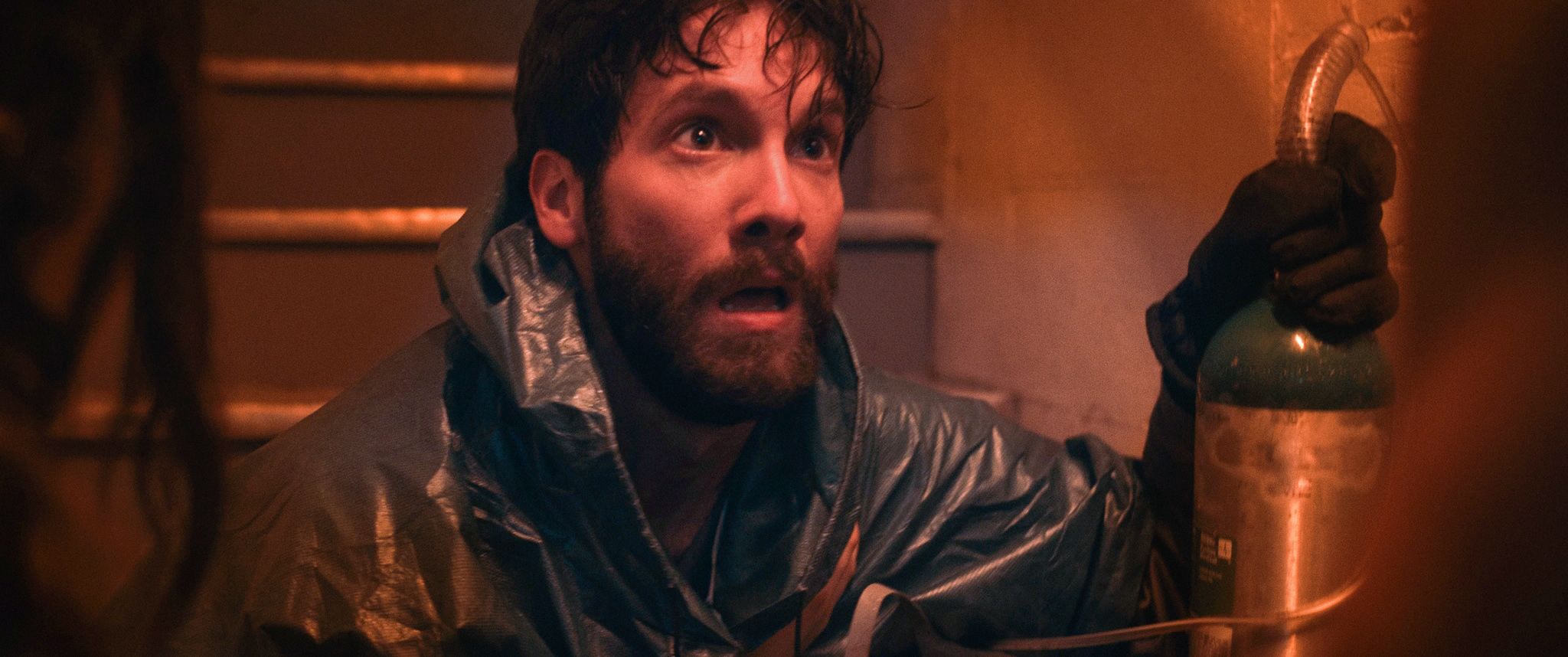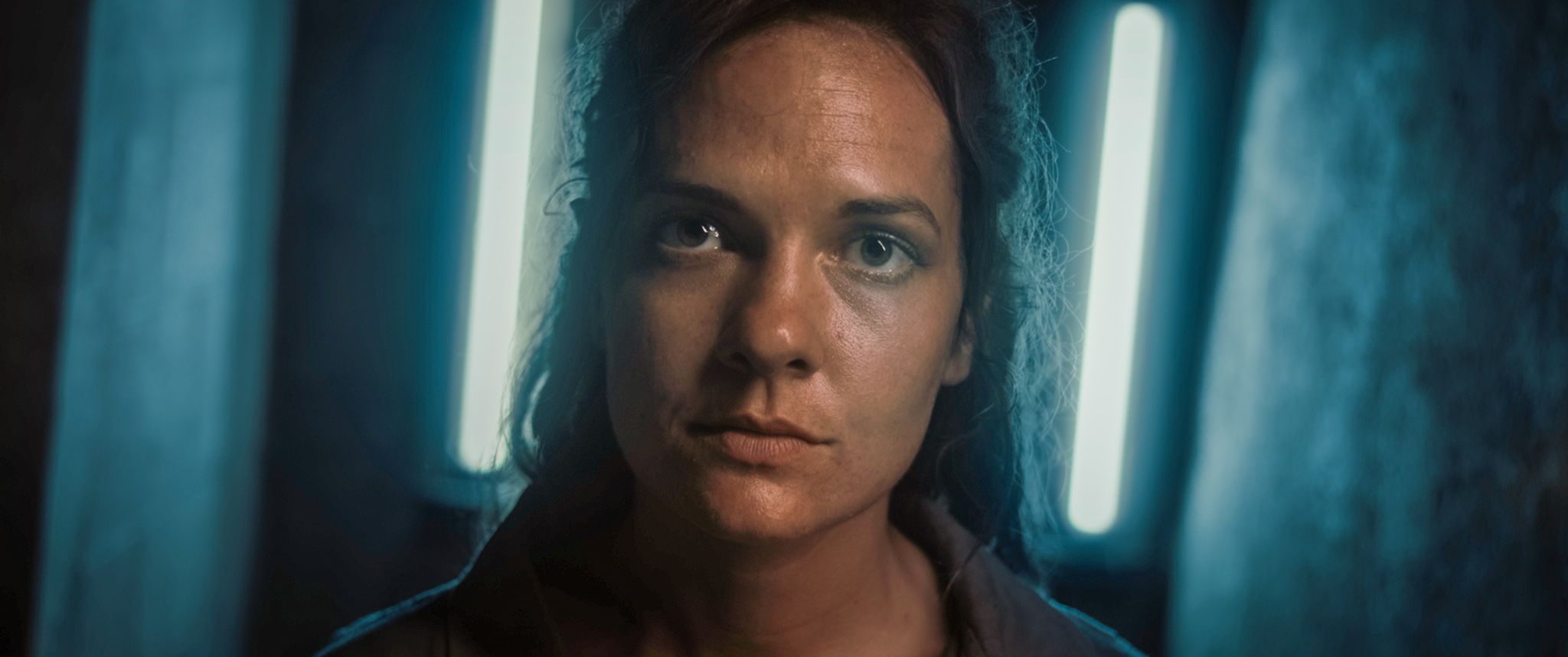On the surface, Cryo's premise sounds simple enough: Five individuals wake up from a cryogenically-induced slumber, with no recollection of who they are or how they ended up in an underground facility. Instead of names, they are known by numbers or occupations… Doctor, psychologist, engineer, soldier, and biochemist. Problems arise when they deduce the outside environment is lethal. To make matters worse, not only does the group have limited supplies, but they are convinced that a killer walks among them.
In order for the quintet to survive, they must regain their memories and piece together the who's and what's of the situation. However, it soon becomes apparent that each person harbors a secret… Ones that could possibly unravel the experiment or threaten their very existence. Director Barrett Burgin recently spoke with CBR about making the film, pressure-cooker scenarios, exploring human nature, and twist endings.
CBR: As the co-writer of Cryo, what was the inspiration behind the premise? Where did the idea stem from?
Barrett Burgin: It came from when I was with a friend for a service project, as part of our community. We were visiting an old woman. We went to see her in a nursing home. She told us this very long, detailed, very lucid story about her son, who had been in the military. Once she was done with the story, we started to ask her questions and asked if there were things we could do for her. Then, she started in again and repeated the exact same story. She had dementia, so she completely forgot she had already said this. She went on to do that three times. I mean a really long, detailed story with the exact same verbiage and the same sentence structure. That got me thinking. I was like, ''Man, that is so interesting. How often do our brains, even those of us who are not demented, do this where we get into a flow and repeat our behavior?'' It got me thinking about change and if you were to reset someone, would they, more or less, behave the exact same way in a certain scenario? How deep is our intuitive behavior?
My buddy had pitched this to me long before, of scientists waking up and they can't remember who they are. That is the initial direction that would have been maybe easier to take. ''Oh, it's just a whodunit. There's a killer. That's the danger of being asleep too long.'' I guess what I would say is what inspired Cryo for me is the nature of people and whether we are really able to change, at least on a subconscious level, And, then also, I love the dark questions that science fiction technology poses. There is a lot of progress, but what are the dangers of an experiment like this?
How much did Cryo allow you to explore the mechanics of human nature?
In working with the actors, they would get a little frustrated because I wouldn't give them any backstories. I wouldn't give them any details about their characters. The last 10 pages of the script were redacted, so they actually didn't know who did it. They didn't know what the twist was.
It's not like the character motivations are particularly complex or deep. That's because if you just woke up and had no idea who you were, you would be going off primal-instinct, survival mode. I think it's within our nature to immediately become suspicious, to form little alliances, and point fingers. On top of the deterministic nature of our choices, it was also an exploration of how people would respond when they don't know anything about themselves. I think they hold on to whatever they can and point fingers at people who are different than they are.
Introduce us to your characters and the circumstances they find themselves in.
First of all, we have our protagonist, 002. She discovers she is a psychologist. She is the first one to wake up. Her big motivation is she understands people and realizes if they are ever going to get out of this situation, they have to be able to remember what is happening. Her primary motivation is to find clues to understand who it is she is working with. She realizes there is something deeper going on, but she doesn't know what it is.
Then, there's 001, the engineer. He seems to remember the most about what happened because he helped construct the cryo chambers. Naturally, he is going to try and remember more because when he sees the cryo chambers, he's like, ''Oh yeah, I was part of this. I remember building these.'' So, he's engineered them. He seems suspicious of the others because he remembers a little bit more. And he's obsessed with finding the Inventor because he remembers there was another friend, who designed the cryo chambers. He built them and the Inventor designed them. He's almost like this disciple to the Inventor. He's sure that the Inventor is going to come to take care of everything, that he's going to come save them, and that this is all in order to smoke out the imposter, who is among them. They found blood. They found a machete.
The engineer is also hiding something in that he is realizing that the cryo chambers, at least one, in particular, are not functioning quite as well as they were supposed to. He doesn't want the others to know that because he doesn't want to seem suspect.
Then, you have the soldier, who doesn't have a number. It looks like it maybe was supposed to be 004 because there's no other 004. The soldier is also hiding something. He has a gun, which becomes evident pretty early on in the film. He's a communications and technology specialist, so he's most interested in getting outside and finding out about the world around them. But, the rest of the group knows that the likelihood that the outside has become poisoned is high, so they won't let him go out there. He also has all these inexplicable wounds, like cuts and bruises. The rest of the group doesn't know what that is from and neither does he because he doesn't remember. He's kind of a hot head, so he becomes a natural suspect for the rest of the group because of how angry and out of it he is. He is also seeing things, like seeing weird visions. They all start to do this.
Then, you have the biochemist, 003. His big motivation is he wants to stay safe. He does not want to go outside. He is sent outside to go evaluate the plant life and stuff. He is also obsessed with the doctor. He's really into her, and he's really into the idea of controlling his circumstances. He's not always forthcoming or honest about what he's thinking or feeling.
Finally, there's the doctor, who is 005. She is getting sick, sicker than anyone else on the team. She is hiding the fact that she is hungry all the time. She doesn't want anyone else to know how ill she is getting. She's desperate to go outside as well but to run away rather than to figure out how clean the air is. The soldier is convinced that someone down there is a killer. The engineer is convinced that somebody there is not telling the truth. The doctor does not care one way or the other. She just wants to get away.
The narrative is a big pressure-cooker scenario. In what ways are you playing up that paranoia? How is it gnawing away at the characters?
The pressure cooker, as a large part, is they have only found a little bit of food, and they are running out of water. There's a bunch of supplies in this shielded-off door, but they don't know the code to get into it. The paranoia increases because their food keeps vanishing and because they keep seeing instances where a dark figure is spying on them or down a hallway. The psychologist keeps having these dreams.
The largest factor of the pressure cooker is that shortly after they wake up, they find a machete lodged in a door. They find a bunch of blood that was recently spilled all over the door, and they find bloody hand prints and stains all over the place. What that suggests to them is that if they can't go outside, there has to be somebody down there who committed some kind of violence. That's in large part why they can't trust each other. Either somebody is down there with them or if one of them is not telling the truth, it's only a matter of time before they are all going to be murdered in their sleep.
The movie concludes with a twist. Without going into spoilers, how did you land on that ending? What did you want to say?
What I wanted was to dive deeper than a simple whodunit. I love whodunit movies. Some of my inspiration for this was Agatha Christie's And Then There Were None. I really loved Annihilation by Alex Garland -- the idea of scientists going into an unknown space and the disorientation. I think I wanted to explore something deeper about the human psyche than just how we would respond to one another. What does this movie say about our behavior and our actions when we are not aware of our circumstances when we are not aware of ourselves?
would say in day-to-day life, that's actually true of a lot of us. We become unaware of our choices and unaware of ourselves. When that happens, our intuitive-instinct selves kick in. What does that mean about us? What does that mean when so much of what we do is out of our control? Even with the big twist in the ending and how the final destination of all these characters is decided, it comes from a sense of being out of control of one's choices or one's self.
Cryo is available in theaters on June 24 and On Demand and Digital on June 28.

